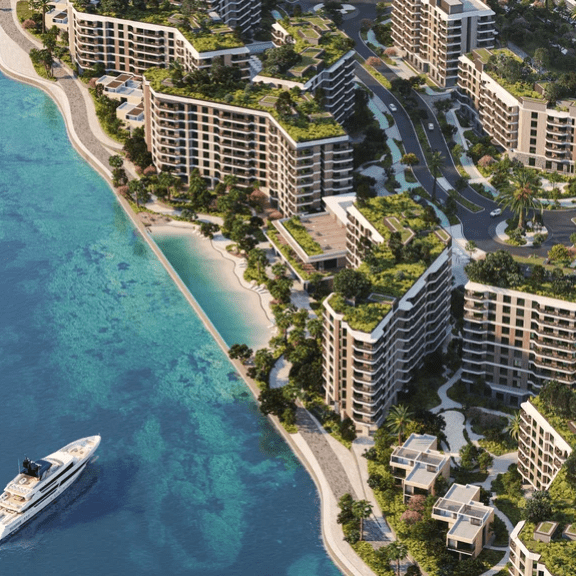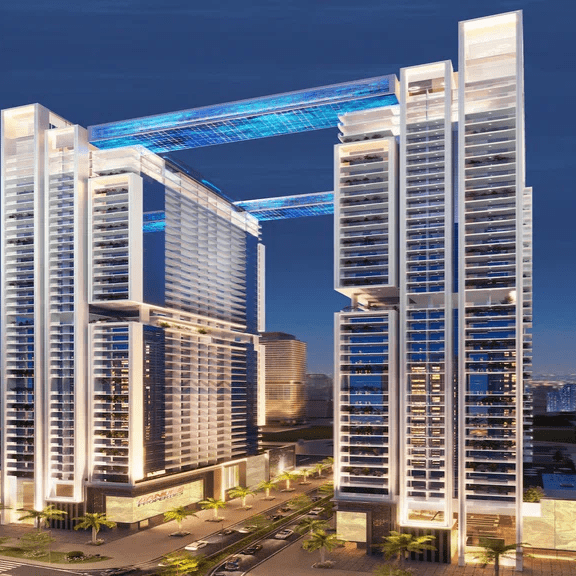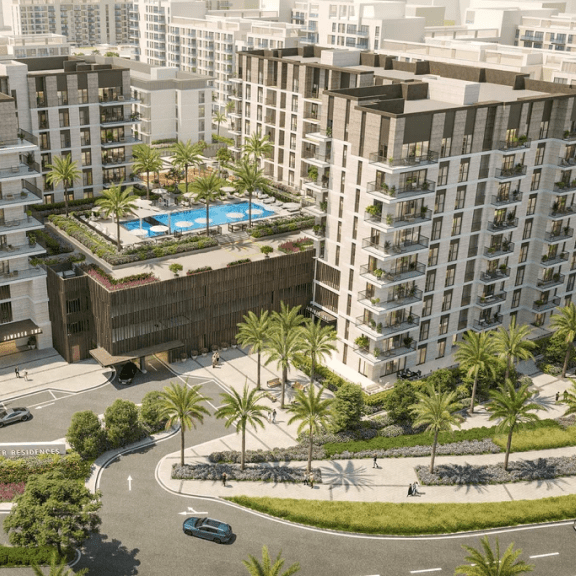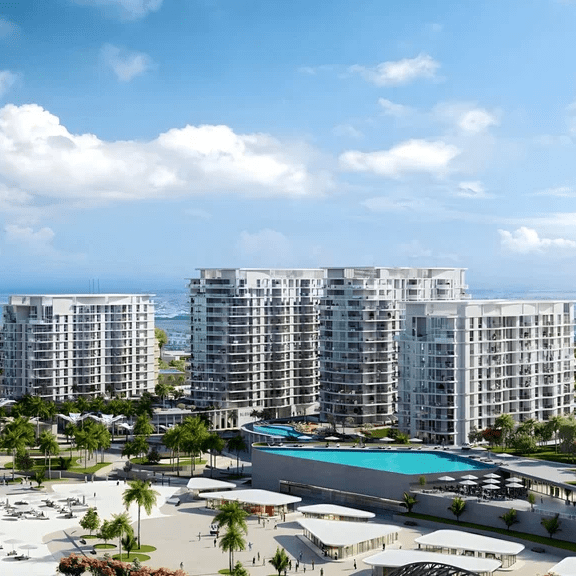Investing in real estate in Dubai is considered to be exceptionally profitable which is why the local residential property market attracts so many investors. However, it does have its peculiarities, so potential buyers (especially international ones) need to know what risks may be linked to purchasing residential real estate.
The Risk of Miscommunication
There are specific types of real estate in the emirate that are not available for sale to foreign citizens. However, the emirate does have designated freehold zones where individuals from other countries can purchase real estate or plots of land, and they have the freedom to resell, rent, develop, and engage in other activities related to their property.
There are also leasehold zones where real estate is not eligible for purchase by foreigners: only the citizens of the UAE and some other Arab countries have the right to buy properties there. Residents of other countries can acquire the right to utilize those properties under long-term rent conditions for up to 99 years with the right to extend the lease.
Leasehold properties cost less than freehold ones. Buyers need to inspect the property’s status very carefully in order to make the correct assessment of their investment capacity.
The Reliability of the Developer
Regardless of the type of property the buyer chooses, whether it is finished or under construction, it is essential not to make a purchase decision solely based on a picture. It is crucial to visit the site in person and meet with the developer's representative or your real estate agent. To gain a better understanding, it would be beneficial to compare the chosen property with other properties of a similar class in the same location. This will help you make a more informed decision.
If the buyer is considering secondary market listings, it would be prudent for them to engage with the complex's residents. By doing so, they can gather valuable insights into the facility management company, the overall maintenance of the complex, and whether the current residents are satisfied with their living experience or if they have any concerns.
When visiting brokers or sales offices, it is essential to verify their registration with the Real Estate Regulatory Agency (RERA). Dubai has significantly strengthened its supervision of real estate deals and market players, but unfortunately, some individuals may still attempt to circumvent the rules.
New buildings in the UAE
The Quality of the Real Estate
There is also the risk that the real estate purchased at the construction stage may not turn out as nice and visually appealing as it was portrayed in the promotional leaflets at the sales office. To mitigate these risks, it is advisable to conduct thorough research on the developer's track record and gather feedback on their contractors.
It is also crucial to consider that each developer specializes in particular types of projects. For instance, if you find that a developer selling a new upscale residential complex has primarily focused on affordable housing construction in the past, it may raise reasonable doubts, even if the price appears highly attractive. To ensure a sound investment decision, it is essential to conduct a thorough examination of the property and the developer's previous projects, make additional inquiries, and seek advice from experts. If the company lacks experience in handling luxury projects, there is a higher likelihood that the quality of their property may not match that of others in the same category.
The pace at which the complex's infrastructure is being developed is also essential to consider. In many cases, it is left to be handled last, resulting in situations where the buildings are already completed, but the necessary infrastructure is still lacking. This could potentially pose problems for those planning to rent out their apartments, as the absence of proper infrastructure can decrease the value of the listing for potential tenants.
Construction Delays
Despite the fact that developers in the UAE pay large fines if they exceed their construction completion date, most of the new developments in Dubai are finished later than planned. It is so and there is nothing you can do about it. Perhaps you should pay attention to how significant the delays were on the developer’s previous projects.
Photo: Aleksandar Pasaric (Pexels)
Unforeseen Expenses
One common mistake some real estate buyers make is that they do not consider all the expenses before the purchase.
You should include additional expenses into your budget as well. The standard list of such expenses would include:
- A DLD (Dubai Land Department) transfer fee – 4% of the property’s price,
- The Title Deed issuing fee – 500 AED ($136),
- The insurance fee for the sales process – 4,200 AED ($1,100),
- An agent’s commission – 2% of the property’s price,
- The No Objection Certificate (NOC) issuing fee – 5,000 AED ($1,300).
This list may be longer or shorter depending on the property and purchase circumstances (whether a mortgage was involved or not), etc. Additionally, it is essential to inquire about the cost of utilities. For instance, the electricity bill may turn out to be surprisingly high.
Another important aspect to consider is facility maintenance costs. Generally, the maintenance expenses for villas or townhouses tend to be relatively low. However, for apartments, these costs can be quite substantial. Older apartment complexes, in particular, may require significant technical servicing for elevators, air conditioning systems, and other amenities. To make an informed decision, it is crucial to carefully examine what the maintenance fee includes for each residential complex and whether it covers future capital repairs.
Installments and Mortgage
Developers often present highly enticing payment conditions, such as 20/80 or 30/70 payment plans. However, it is crucial to recognize that such plans come with high risks. Opting to pay only 20% or 30% of the listing's price as the first installment and relying on future funds earned during the construction period or securing a mortgage might lead to unfavorable financial circumstances after 2 or 3 years. There's also the possibility of not obtaining bank approval for the remaining funds, leaving the buyer in a difficult situation. In such cases, the buyer might be compelled to sell the property urgently, likely at a significant discount. It's essential to understand that having debts in Dubai is not considered a misdemeanor but rather a crime under the legal system.
District Selection
Before purchasing a property, it is crucial to determine whether it will be used for your personal accommodation or if you intend to rent it out. This decision significantly impacts the type of property you should choose, making it essential to make the right choice based on your intended use.
If you plan to reside in Dubai, exploring options for a detached house in a peaceful, less densely populated area could be a suitable approach. However, if your goal is to generate profits from your property, a suburban villa might not be the most optimal choice for investment purposes.
Renting out a villa could yield its owner approximately 7% per annum, while an apartment has the potential to generate up to 12%. The difference in returns is quite significant. A smaller but more expensive apartment located in the heart of Dubai may provide a return on investment in just a few years, whereas a more affordable villa in Dubai Marina could take considerably longer to reach the same level of profitability, even though residing there would offer a more pleasant living experience.
To achieve higher profitability, it is crucial to be cautious when selecting a district for your property investment. For apartments that are easier to rent out and yield better returns, consider well-located areas such as Dubai Marina, Downtown Dubai, City Walk, Dubai Festival City, and Dubai Creek Harbour. On the other hand, if you are looking to invest in villas for commercial purposes, the most profitable locations are Palm Jumeirah, Jumeirah Island, Jumeirah Golf Estates, and Emirates Living. Being strategic with your choice of district can significantly impact the success of your investment venture.
Dubai Festival City. Photo by SoQ錫濛譙 (Flickr)
A Couple More Peculiarities You Need to Know About
Before finalizing a sale and purchase agreement for an apartment in a complex under construction, it is highly advisable to consult a lawyer. One crucial aspect to verify is whether the agreement includes any restrictions on selling the property before the construction is completed. Some agreements may contain clauses that require the buyer to make a prepayment of a certain portion of the total cost (e.g., 40%) before the developer grants approval for the sale.
Furthermore, it is worth noting that some developers establish a minimum selling price (MSP) for the property, and they may prohibit the initial buyer from reselling the property for a price below this specified threshold. This practice is employed to prevent hindering their own sales and maintain stability in the property market.
If your intention is to generate passive income through renting the property, it is essential to verify that the future rent declared by the developer aligns with the current market rates. In certain cases, developers may "subsidize" the rent for the initial two years. However, once this subsidy period concludes and the apartment is exposed to the open market, the owner might encounter an unpleasant surprise in the form of a significant drop in its rental value and income. This situation could be particularly distressing if the property was purchased with a mortgage paid for using the rental income.
Let's talk about taxes. Dubai is known as a "tax-free" country, as it imposes no income tax or capital gains tax for private individuals. However, if the buyer does not reside in Dubai and is a law-abiding tax resident of a different country, they may be obligated to pay both income tax and capital gains tax in their country of residence. It is crucial to consider this aspect carefully, ensuring that the taxes payable in the buyer's home country do not exceed the profits earned from rental income.
In a Nutshell
To prevent mistakes and minimize risks when purchasing real estate, thorough market research is essential. It is crucial to have a clear understanding of the type of property and its location you intend to buy, as well as identifying reputable developers to work with and understanding the loan conditions offered by banks. Additionally, you should familiarize yourself with all the intricacies of real estate contractual proceedings and carefully calculate potential additional expenses. While experienced buyers might be able to navigate these nuances on their own, first-time buyers in an unfamiliar market may find it more beneficial to seek the assistance of professional consultants. Their expertise can provide valuable insights and guidance, ensuring a smoother and more informed buying process.
Cover photo: Denys Gromov (Pexels)




